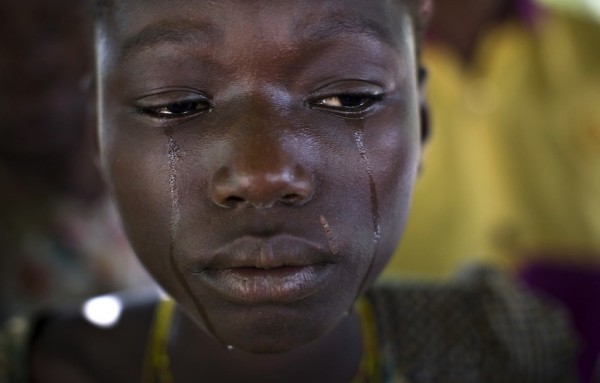Young Children Believe Blacks Feel Less Pain

Very young children are racially biased when it comes to pain perception, according to a new study.
New research conducted at the University of Virginia found that children as young as seven believe that black children feel less pain than white children.
Researchers said the latest findings come from a group of mostly white American children, and supports previous research on bias among adults involving pain perception.
"Our research shows that a potentially very harmful bias in adults emerges during middle childhood, and appears to develop across childhood," lead researcher Rebecca Dore, a Ph.D. candidate in developmental psychology at University of Virginia said in a news release.
Researchers said the findings are important because many kinds of explicit biases develop in early childhood. For instance, previous research reveals that children are more likely to play with friends of their own race.
While most biases tend to decline in later childhood, researchers said the latest finding suggests that the racial bias in perceptions of other's pain appears to grow stronger from early to late childhood.
Researcher explained that they found no evidence of racial bias among their study participants at the age of five. However, bias began showing up among participants at the age of seven and became particularly noticeable at the age of 10.
"Our finding can't speak to how parents or teachers, for example, might intervene and try to halt these biases at an early age, but we currently are running a study that might speak to that question," Dore said. "However, what this study can inform is the timing of any interventions. If we want to prevent this bias from developing, it needs to be done by age 7, or age 10 at the latest."
While parents and teachers feel uncomfortable talking about racial issues with children, researcher said the latest study suggests that they should begin educating children at young ages.
"Talking to children about racial issues early may be important for preventing the development of biases that could have consequences in adulthood," she said.
The latest study involved children at ages 5,7 and 10. The participants were asked to rate the severity of pain that they perceived would be felt by other children of the same gender in different situations, such as hitting their head, or banging a hand in a door.
The findings revealed that 7- and 10-year-olds were more likely to rate pain as being less severe when shown pictures of black children than when they were shown pictures of white children.
While the study doesn't explain why children show this bias, previous studies suggest that adults believe black people feel less pain because they assume black people have experienced more hardship in their lives. Researchers said the next step is to understand whether this "adult" perception may explain racial bias in children.
The findings are published in the British Journal of Developmental Psychology.
Feb 28, 2014 04:11 PM EST





